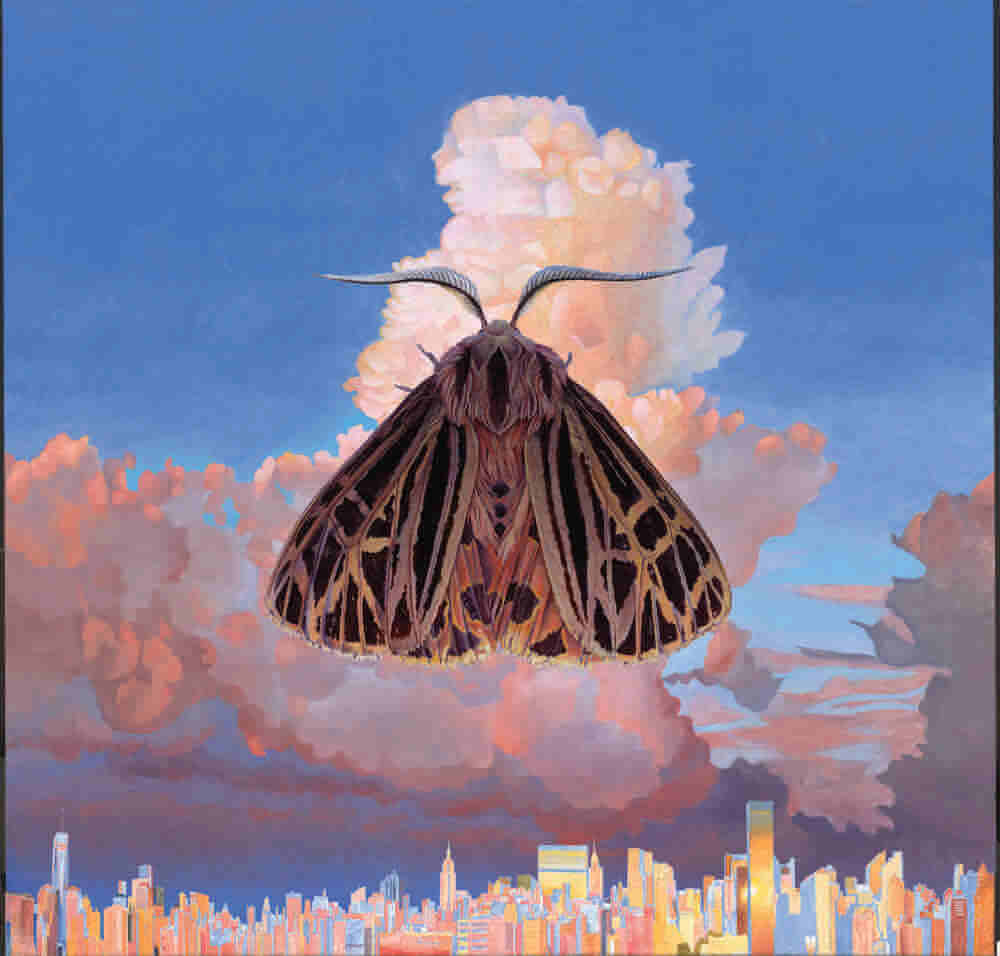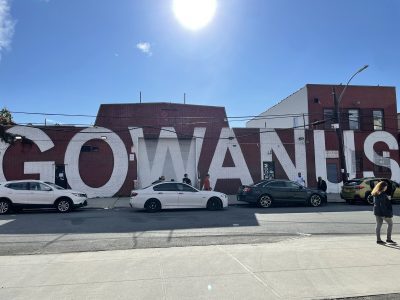Album of the Month: Chairlift’s Moth
Moth opens with a command, urging your eyes toward the sky: Look up. For Brooklyn pop experimentalist duo Chairlift, this doubles as an actual visual cue, and a spiritual nudge out of self, toward ambition. In the years since Chairlift’s major label debut, 2012’s Something, Caroline Polachek and Patrick Wimberly have elevated. Polachek released an acclaimed solo album as Ramona Lisa and contributed the devilish, iridescent “No Angel” to Beyoncé’s world-stopping surprise album. These two experiences, in particular, seem to fuel the mischievous joy that floats through Moth.
Polachek and Wimberly recorded the album in a converted studio they built in an abandoned pharmaceutical building on the edge of Williamsburg, an unlikely transformation mirrored across the ten tracks here. Vulnerability and arrogance bubble effervescent across a suite of sculpted electropop anthems that swing for the fences, and connect, effortlessly melting funk, R&B and blockbuster 80s pop.
The album is led by the swaggering pop hijack “Ch-Ching,” a song that rolls those uncanny Manhattan bursts of luck into a delicious slot machine hook. It’s that smug wink, a kiss on your stoop, the train coming right on time, your got-the-job phone call — “Ch-Ching” is every jackpot moment. Moth also contains what comes after: The dazzle and the exhaustion, the hours of tireless work, creeping doubt, heartbreak, and even contentment. This is clearest on the album’s true centerpiece, the ever-so-New York “Crying In Public.” Over a stippled bassline and whispered clicks, Polachek narrates a collapse fueled not by loss, but deep, confident love; devastation blooming in gratitude.
Mostly, Moth is an album about growth and the way it stretches us toward impossible, unexpected brilliance just when we thought we’d break. Jazz-indebted “Polymorphing” gets at this, mixing scats and arias, gently reminding that what you thought you wanted often pales in comparison to what you actually get. “Romeo” contains all the plush, clattering potential of a city that defines itself as jungle, one that begs to be hunted and lures hunters here. On “Unfinished Business” Polachek pulls back, acknowledging the way the city’s landmarks become tied to those who leave our lives, but not our neighborhoods. And certainly not our hearts. It’s her voice, which is faceted, flickering, like a crystal catching the light, that conveys both the searing heat of gasoline-fire pain and slow magma joy.
“There’s no such thing as illusion,” Polachek hums on the album’s closing track. Magician that she is, you believe her.
You might also like 




















